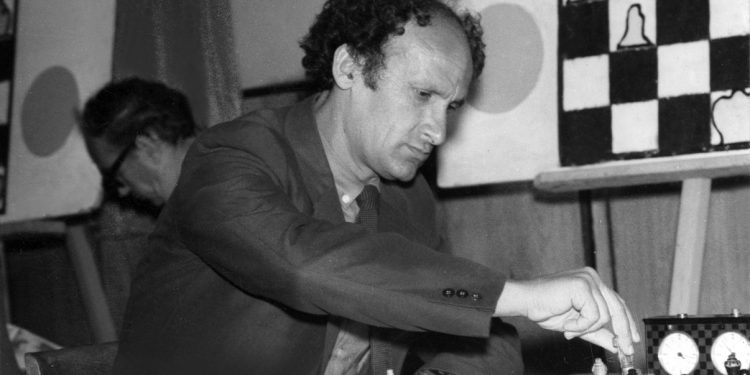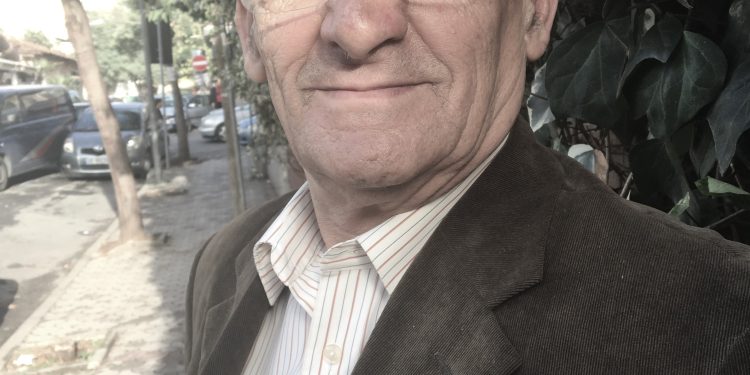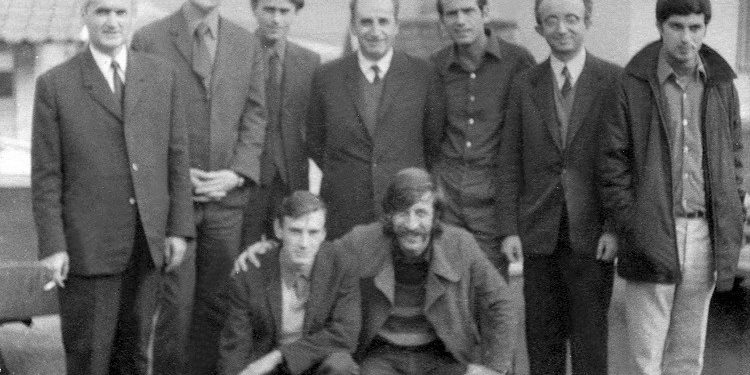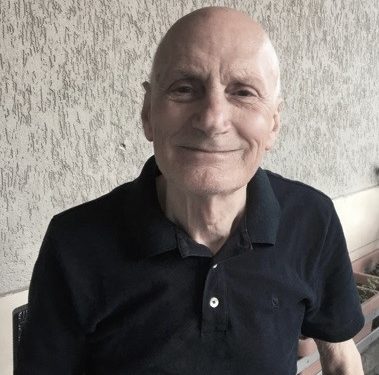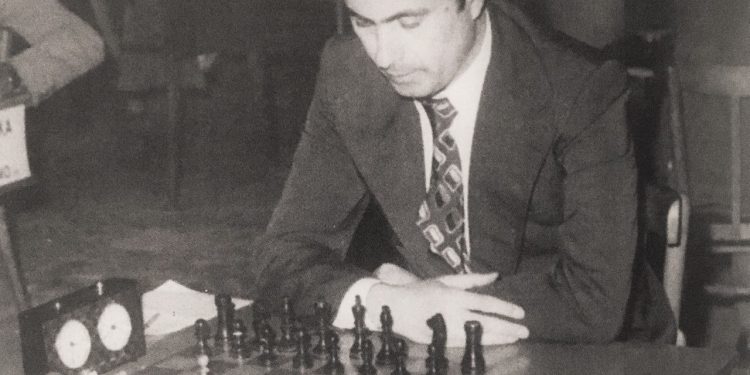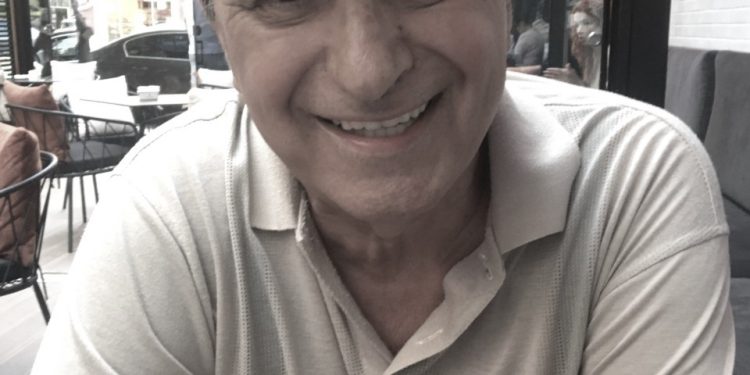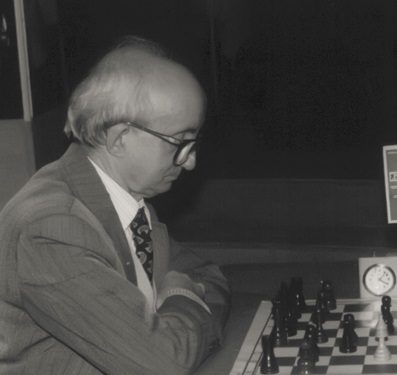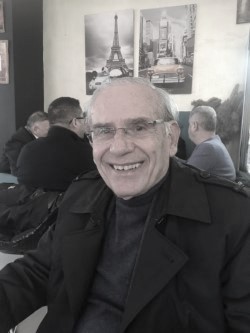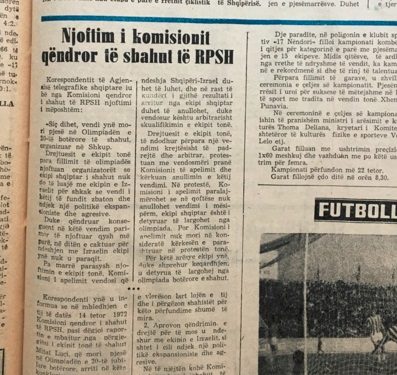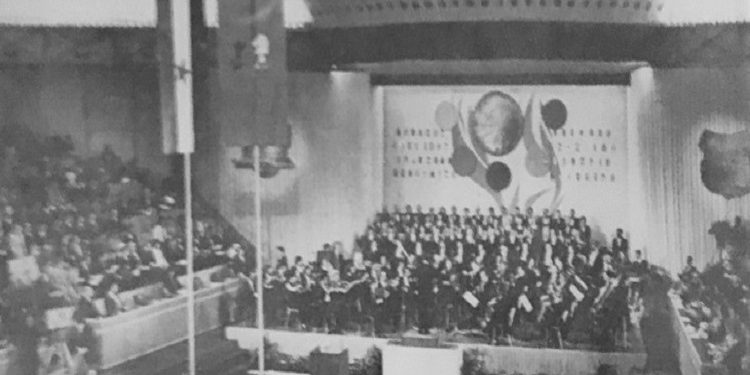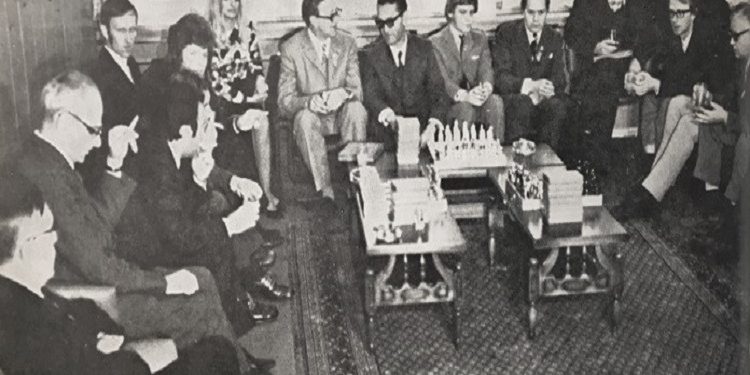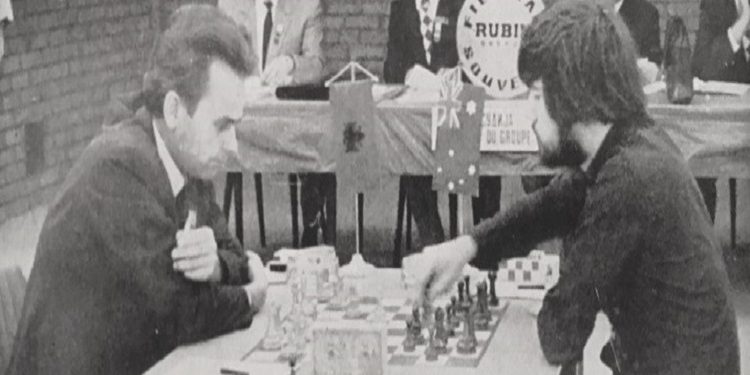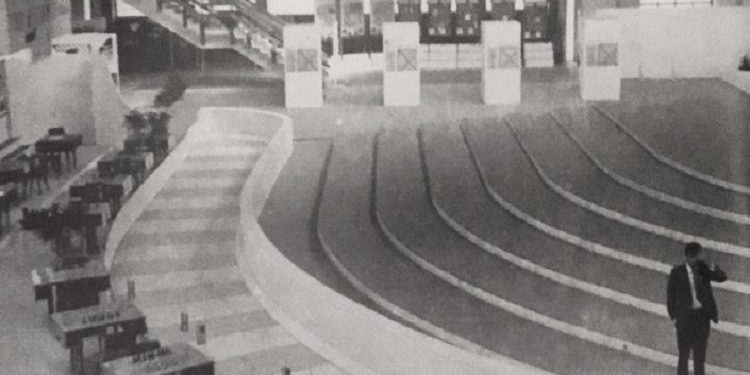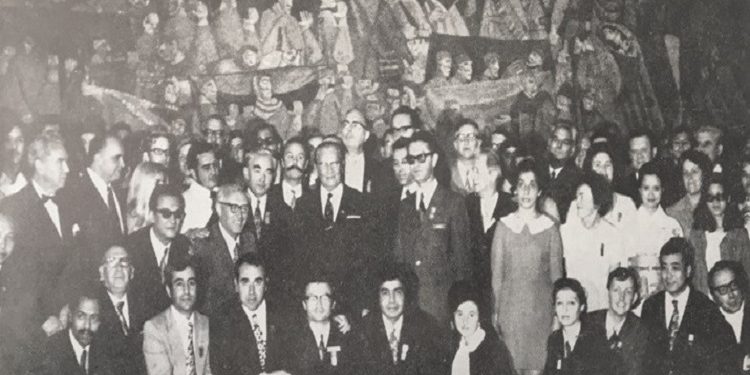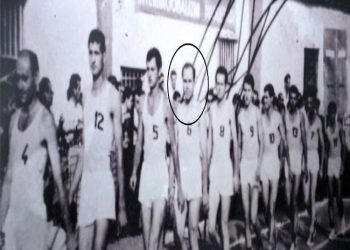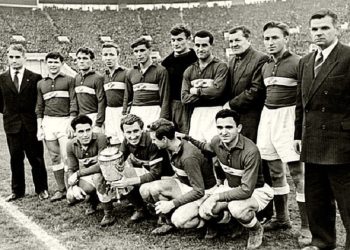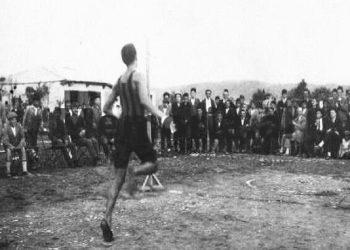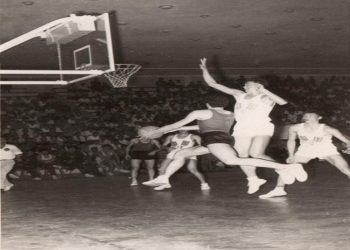FROM UVIL ZAJMI
Second part
Continues from last issue
Memorie.al / although the years and decades pass, there is still mystery about the World Chess Olympiad, “Skopje ’72”. Our chess players boycotted this Olympiad and the reason was that they did not want to face Israel. But what happened? When the last four rounds were left to take place and after a surprising, even very dignified presentation, the Albanian chess players suddenly left, abandoning it. In the previous issue, we showed what were the “official” circumstances that created that situation and then reached the peak of tension due to the opposition to playing with Israel. The Appeal Commission’s proposal for another date was also rejected, accompanied by their harsh warning for the Albanian team’s disqualification from the tournament.
But was that rejection really the main motive of that threat or is it all related to the lack of participation in the reception given by Marshal Tito, on one of the days of the activity? How do the masters Floran Vila, Vangjel Adhami, Fatos Muço and Aldo Zadrima remember today, the atmosphere, the insistence of the locals to travel to Belgrade, the anxiety that accompanied the chess players that week, the order given by Tirana, to part with the Olympics, without finishing it?
RESULTS OF ALBANIAN CHESS PLAYERS, “SKOPJE ’72”
Ylvi Pustina (1935-2018), master, participant in 4 Olympiads (1960, 1962, 1970, 1972), played on the first table and in 17 matches, received 7.5 points (3F, 9B, 5H); At the second table, master Floran Vila, second participation (“Ziegen ’70”). In 16 meetings, collected 8 points (5F, 6B, 5H); Vangjel Adhami, master, on the third table, the second tournament for him as well. In 14 meetings, he managed to get 8 points (5 wins, 6 draws, 3 losses).
At the fourth table, Fatos Muço, debutant in such a tournament: 11.5 points in 16 games (9 wins, 5 draws, 2 losses). Master Fatos Omari (1933-2011), fourth Olympiad (1960, ’62, ’70, ’72), as first reserve, 1.5 points in 3 meetings (1 win, 1 draw, 1 loss); Aldo Zadrima, second reserve, debutant, got 2 points (4 draws) in four games.
In this Olympiad there were 134 International Grand Masters, world champions, who played at the first tables, etc. The winner was the USSR, (Union of Soviet Socialist Republics), which received the “Hamilton Resell” trophy, the name of the one who invented it in 1927, all in gold. Hungary second, Yugoslavia third.
“YUGOSLAVIANS DID NOT BELIEVE ME THAT I WAS A PHYSICIST”, MASTER FLORIAN VILA: THE FOOLISHNESS OF TIME, THIS IS WHAT MEHDI BUSHATI TOLD US
Master Florian Vila returns to that tournament with an original determination: “The Skopje Four has been and remains the best representative team in the history of national chess”, he says.
Mr. Vila, what was the atmosphere in Skopje, that September 1972?
Based on the little information and the excellent result we achieved after the first round, foreigners were curious to know something more, from a country where athletes have a 5-hour privilege, and the sport is played at amateur levels, it is not professional. Even chess players have different professions, a detail that surprised journalists or local televisions, from which the interest was great.
The moment of refusing to play with Israel comes, what happened specifically?
At the meeting with Israel, we did not show up, we stayed at the Olympic complex. Then the matches continued, we played Italy, Austria, Colombia and we thought that was the end of it. They were not interested in disqualifying us, because we judged that they would be satisfied with a technical penalty, like two years ago in Ziegen, with South Africa, where everything went smoothly and we continued the tour.
What do you remember about the reception that Marshal Tito would give in Belgrade and why it was boycotted?
It was a day off and the organizers had scheduled a meeting with Marshal Tito, who was also elected Honorary President of the Olympics. Each delegation should be represented by one or two people. They came and asked us to go too, repeating the invitation to us throughout the day, until just before the flight to Belgrade.
I don’t know, even today I have no idea, the reason why we didn’t go, because we weren’t told anything. In that crowd of guests, our presence would be quite normal. I say that everything after that came as a result of the boycott that we did to the invitation. The nonsense of time.
Exclusion or disqualification, how to understand the decision?
They didn’t expel us, but they put a condition on us: “If you didn’t play with Israel, setting October 13, you will be disqualified.” I think this was another attempt to give us a second chance. Israel was the delegation that fought us the most in this Olympics, neither the Americans nor the Russians, who tried not to react. I remember that in Lucerne, at the 1982 World Olympics, we were drawn with the Russians. They intervened and changed the draw, they didn’t want us to be punished and we avoided the collision with them.
Mr. Vila, talk about an opening attempt, not a boycott. Why?
It is about when Mehdi Bushati came to the sport, an intelligent man, who, although he knew this handicap, said: “…we don’t play, but we try not to be excluded, to create good relations”. It was from him, after the 80s, that there was an attempt to open up in the sport, with the idea of playing against Spain, the USA, the Russians, and even Israel.
What was the most beautiful game in Skopje?
She to the MND, the Canadian Zvanko Vranesič. Specialists considered his victory indisputable, not even counting the draw. I played white, played a surprising, unexpected game and won after 34 moves. He was the one who reached out to me in acceptance of defeat. It has been the most beautiful game I have developed in my life.
MASTER ALDO ZADRIMA’S MEMORIES: THE AGENTS WATCHED US, TWO WOMEN FOLLOWED US
Starting as a reserve in that debut, Aldo Zadrima managed to get 2 points after four draws. “For me it was a positive, encouraging presentation. He would rather not have it for a young chess player, for his career. Lucky that I took part in such a representation, in such a big tournament”, he recalled after so many years
Mr. Zadrima, just a few days before leaving for Skopje and you were not on the list. Why?!
Two or three days before, it was said that in Skopje the team will be represented by 5 chess players. On that list, the youngest person not to appear was me. Instead of the reserve chess player, the State Security employee would go. Between the waiting and the anxiety, until the answer came, was the minister Thoma Deliana, who gave the order that the chess player will go to the Olympics. For that of Insurance, another financial fund should be found.
How much experience did Albanian chess have, for such a tournament?
For me and Fatos Muço, that Olympics was the first international tournament of that level. Although in Tirana, we had met chess masters from Eastern countries, who came and participated in our national championships. So, a modest experience was gained.
The Fisher-Spaski final match is also followed by you… What do you remember?
When we were gathered at the “Vollga” Hotel, our trainer, Prof. Bujar Hoxha, from radio “Luxembourg”, late at night, followed the match, the comments, took note of the movements and we discussed them the next day. Meanwhile, when we were in the Olympic Village in Skopje, before the start of the tournament, it was said that Fisher would come and play in the world championship. They had reserved some villas on the hill above us. We waited for him every day. But, as they told us later, he had set some conditions for the American team, which they had not fulfilled. That’s why he didn’t come.
Do you remember the trip?
The departure was made from the Chess Club near “Estrada”, with a small bus. The night overtook us. We decided to stay in Dibër te Madhe where we slept in a hotel near the spas, from where Peshkopia was visible. The whole town came out to meet us. The news spread quickly. Ylvi Pustina had his people there. Longing and a lot of curiosity. The Albanians accompanied us to Skopje, on the days of the tournament. I remember when many chess players, specialists present at that tournament, would regretfully say: “It’s too bad you are excluding this wonderful team”.
Mr. Zadrima, during the tour you were under surveillance, did you know this fact?
I remember that after the event, i.e. the tragedy with the Israeli athletes in Munich, even the chess players were under absolute, constant and careful protection. They were located in a hotel near the hall where the meetings were held. But we were also under surveillance. The day before we left, we went out to the city to buy something, when Fatos Muço approached me and told me that they were following us. And there were two women guarding us, checking our every move.
Master, save a book “Chess Olympiad Skopje ’72”, where on the first page, there is an expression “Gens una sumus”! How do we understand it?
Which means: “We are one nation” or “We are one family”. This was the message given by the organizers and that they wanted the tournament to take place in such an atmosphere. The fact that they put it on the first page of the book of this Olympiad clearly expresses this fact. Political attitudes in such tournaments were not liked; they considered it against the spirit of sport.
“THE NETHERLANDS AND PORTO RICO MADE A COMPROMISE THAT BURNED US”, MASTER ADHAMI: HOSTAGE FOR WHICH WE ARE NOT RECOGNIZED
Five-time champion of Albania, master, the second competition in such a major event, after Zigeni ’70, where in the 4th table, in 11 games, he collected 6 points (5/4/2). He was not even 20 years old. A more than dignified representation for Vangjel Adham, who shows some important details of that event.
Mr. Adhami, you were in Skopje, in the city where the earthquake hit with great consequences. What do you remember?
We saw the new Skopje, which had been rebuilt after the 1967 earthquake. Only the hands of the big clock had been left at 5.15, as a symbol of the time when the earthquake had struck. We settled in the new Olympic complex, with two-story buildings, on a height like Dajti, which overlooks Tirana. I was in the room with Fatos Omar. I remember that the Security employee was called Laze, while the translator, a local, and was called Anton.
Albania is represented without a coach in that Olympics, how is it possible?
Yes, it’s true, neither Bujar Hoxha nor Zef Ashta came. I don’t know the motives. In Skopje, this task was performed by the companion, Mit’hat Luçi, a very good, positive man, often in the role of friend, coach, and jokingly, as a former major officer, he divided us into ranks, first, second and reserves. With Iraq he gave me rest, I was tired. Dashamires ran from one phone to another, day and night, talking to Tirana. Although he requested that the Albanian delegation go to Belgrade, “implement the orders, whatever we told you”, was the answer from the Albanian government.
In that Olympiad, computers were installed, a great innovation for the time?
Unlike “Ziegen ’70”, in Skopje for the first time in a World Olympics, computers were installed to predict the results of the matches. I remember that Albania, from the computer system of predictions, was not a winner in any meeting, but the opposite happened. Since the first of Group B, against Belgium, we triumphed 3-1.
Israel or not going to meet Tito, what was the motive of that undeserved competitive end?
The decision to disqualify us was not made immediately after Israel, as we continued to play, which indicated tolerance. The order not to go to Belgrade, after that we had no hope. Our results dropped, we were waiting for the exit. After their return from the reception in Belgrade, it was clear that they had changed their attitude, although they gave us another alternative, proposing that at the end of the tournament, we would play again with Israel. But that wasn’t going to happen.
A slightly provocative question, how do you remember the pre-challenge with the Netherlands and how important was it for the Albanian team?
It was the penultimate match in the elimination group. The classification allowed the teams to rank second. The Dutch had 16 points, while we had 13.5. A victory of ours would send us directly to the final Group A, after the last meeting, we had with Iraq. They had great masters in the composition and were more favored by the fact that the draw was enough for them not to risk.
And 2-2. After finishing they appeared satisfied. I have tied after 7-8 game moves. While with Puerto Rico, in the last meeting, the Dutch made an open compromise. They had drawn it and that’s how it ended, 2-2, which secured them Group A.
Mr. Vangjel, do you have a reaction, albeit delayed, towards the community, the Albanian state?
For the points, the Elo’s that have been lost to us, since every result achieved in a tournament for a chess player has great value in a personal-professional aspect. There are limits that within a period of time, the accumulated points serve to increase the coefficients, which were denied to us after leaving, abandoning, and for us chess players, it was a big minus.
It had to be started all over again, while participation in such tournaments was limited. It was not the fault of the chess players. The state, the chess community, had to react. Along with the Elo, we have also lost international titles. Still none of us, my generation, is a FIDE Master, when in those years, we were very close to the figures of 2300 points.
FATOS MUÇO: WE WERE DISQUALIFIED FROM TITOS, WE COULDN’T CONVINCE ADIL CHARÇAN
Fatos Muço, participated for the first time in a World Olympics and was only 22 years old. “I didn’t even sleep three hours a day. Soviet chess players were interested, they came and followed our games”, he says about that Olympiad where he debuted in an international activity.
Mr. Muço, can yours be called a surprising debut?
I remember two matches. With the Bulgarian Penev, an equal meeting. In cejtnot, due to the effect of time, I made a mistake. But the most beautiful match was the one with the Grand Master, De Gref of Colombia. The meeting was adjourned. Until after midnight, we were analyzing several possibilities. The next day, according to the rules, the opponent’s secret move was put in an envelope that would be opened before the meeting, and you didn’t know what it might be. At 03.00 in the morning, I fell asleep. I put the chess in front, I didn’t want to miss an idea, I worked it out and the next day I won on the 66th move.
Master, what was the reason for the disqualification: not appearing with Israel or refusing to attend Tito’s reception?
Not going to the reception organized by Marshal Josif Broz Tito. That’s what I think. We also spoke with the government, Adil Çarçan, from whom a clear order was received that; no. I judge a mistake also from the fact, how the events continued. After refusing not to play with Israel, the commission postponed the decision for several days. It seemed that they did not want to punish us.
I am sure that if the Albanian delegation was also present at that reception, they would make a milder decision. The boycott greatly aggravated the situation and the tension increased immediately after returning from Belgrade. Added to this were the claims of many countries, with which we had played. They called it unfair that Israel got four points. They insisted on expelling us, so that they would also be given the points.
If you qualified in Group A, where the USA, USSR were also, would you play them?
Of course not, but qualification was important. To get there, that would be a phenomenal result. What happened next is another story. And FIDE was aware that Albania did not play against some countries.
You told us that there is a curiosity in the confrontations with Israel?
We did not play with Israel, because of the policy they followed towards our Arab “brothers”. Even the leaders of the Arab delegation thanked us for the stance we took. But the irony was that the Arabs themselves, the Cubans, even those who declared against them, played against the Israeli chess players…! Memorie.al




